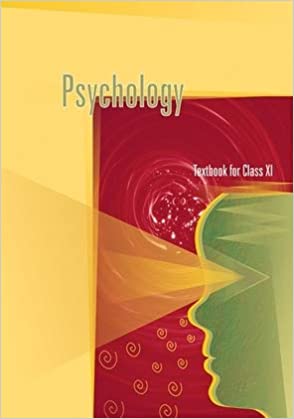- Log in to post comments
Yesterday we got to learn about the various things one learns in Class 11. We read about the basic course structure which helps us in our Bachelor's in Psychology and also summed up the first 4 chapters of NCERT Psychology book.
Now let us move onto the last 5 chapters of the Class 11 book. These chapters are very interesting and give us more information about emotions, memory etc.

Chapter 5- Sensory, Attentional and Perceptual Processes.
In this chapter we get to learn about the processes and types of attention, socio-cultural factors in perception and nature of sensory experiences .Knowledge becomes possible with the help of senses.
Five of them are external senses, and two are internal senses. The sense organs receive stimuli and send them in the form of neural impulses to brain for interpretation.
Vision and audition are the two most widely used senses. Attention is a process through which we select certain information by filtering out many others that appear to be irrelevant at a given moment of time.
Perception refers to the processes of interpretation and informed construction of the information received from sensory organs. Lastly, we talk about different forms of perception.
Chapter 6- Learning
Learning is any relatively permanent change in behaviour or behavioural potential produced by experience or practice.
Next we talk about the various forms of learning - classical and operant conditioning, observational learning, cognitive learning, verbal learning, concept learning, and skill learning. Pavlov talked about classical conditioning in dogs through their salivation process when they see food.
Skinner first investigated operant or instrumental conditioning (OC).
Observational learning is also known as imitation, modeling and social learning. We acquire knowledge by observing a model’s behaviour.
In verbal learning words get associated with one another on the basis of structural, phonetic, and semantic similarity and contrast.
Lastly we talk about learning disabilities, the people who have them are hyperactive, lack sense of time, and eye-hand coordination, etc.
Chapter 7- Memory
This is seen as consisting of three interrelated processes of encoding, storage and retrieval.
The Stage Model of Memory compares memory processes with the working of a computer and suggests that incoming information is processed through three distinct stages of sensory memory, short-term memory and long-term memory.
Levels of processing view of memory contends that the information can be encoded at any of the three levels, namely, the structural, the phonetic and the semantic. Forgetting refers to loss of stored information over a period of time , this chapter also talks about the causes of forgetting.
Mnemonics are strategies for improving memory. While some mnemonics use images, other emphasise organisation of the learnt material.
They can be used to remember shopping lists etc.
Chapter 8 - Thinking
Thinking is a complex mental process through which we manipulate information (either acquired or stored).
Problem solving is thinking directed towards the solution of a specific problem.
While on the other hand, Judgment and decision-making are interrelated processes. Creative thinking involves the production of something new and original , without any mental block or functional fixedness.
Chapter 9- Motivation and Emotion
This is the last chapter of class 11 NCERT. It talks about the nature of human emotions, important motives, emotional expression.
There are two types of motivation, namely, biological(hormones, brain structures) and psychosocial motivation(need to fit in social environment). Maslow arranged various human needs in an ascending hierarchical order.
Emotion is a complex pattern of arousal that involves physiological activation, conscious awareness of feeling, and a specific cognitive label that describes the process.
Culture strongly influences the expression and interpretation of emotions. Emotion of one culture may not be the same for another culture, hence culture is extremely important here.
So this was important stuff to know about CLASS 11 PSYCHOLOGY, which can help you in your Bachelor's first year course too!
Remember, Psychology is a good subject to opt for in 11th to have a base in Bachelor's for this degree.
- Soumya Gulati
